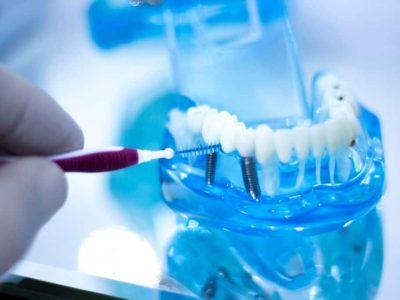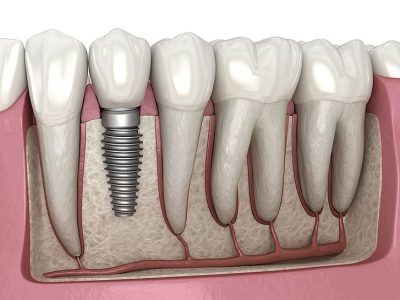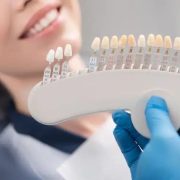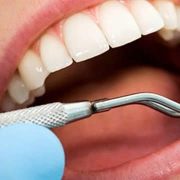A beautiful smile is the best accessory that a person can wear – if you have a perfect set of teeth, that is. While not everyone is fortunate enough to be born with naturally straight pearly whites, the good thing is, there are dental procedures to achieve that perfect smile. For many years, the options were limited to dentures and bridges, which serve their purpose – to replace missing teeth – but today, dental implants are available. Dental implants are artificial tooth roots that are placed through surgery to support the restoration for a missing tooth and teeth. And it is not only for those who are too self-conscious to smile or talk due to missing teeth; dental implants can provide the stability and strength needed to chew and eat food without difficulty as well as prevent bone loss and help support facial features.
Read this article to learn more about the following:
- What is a dental implant and how does it work?
- What are the types of dental implants in Singapore?
- Who are good candidates for dental implants?
- Are there risks involved?
- Are dental implants painful?
What is a dental implant and how does it work?
Having missing or lost teeth is not just an aesthetic or cosmetic handicap; it also affects the quality of life of a person in terms of having difficulties in speaking and experiencing discomfort when eating and chewing. By serving as the replacement of missing tooth roots, dental implants allow artificial teeth that look and function like real ones to be installed.
A dental implant is composed of a body, an abutment, and a fixation screw, and the process of attaching it is a pretty straightforward process. The doctor surgically inserts the dental implant body in the jawbone to replace the missing tooth’s root. The abutment is then attached to the implant body using a fixation screw and it passes through the gums into the mouth and serves as an anchor that supports the artificial tooth, called a crown. The crown is created to fit a person’s mouth perfectly – both in form and in color. In other words, crowns feel, appear, and function like natural teeth.
Since dental implants are fused to the jawbone, the individual crown that is placed over the implants, and even dentures and bridges that are mounted to the implants will not move, shift, or slip in the mouth. This means you do not have to worry about talking, chewing, or smiling anymore – the dental implants will not budge and ruin any moment for you! And a great bonus: dental implants feel more natural than dentures or bridges, too.
What are the types of dental implants?
There are two types of dental implants: subperiosteal and endosteal. Subperiosteal translates to “on the bone”, which means that this type of implant is fitted directly on top of the jaw. The metal posts that are attached to the frame can be seen sticking out through the gums and the metal frame gets fixed to the jawbone as the gums heal. Subperiosteal implants are recommended for those who do not have the required bone height for an endosteal implant. Endosteal or “in the bone” dental implants are more common than subperiosteal implants. This is the type that has a body, abutment, and screw, which have to be surgically placed into the jawbone, endosteal implant is capable of holding one or more artificial teeth or crowns. Endosteal implants are best suited for people who have existing dentures or bridges.
Who are good candidates for dental implants?
In general, any person who is physically fit enough to undergo an oral surgery is a good candidate for a dental implant. He or she should have healthy gum tissues and an adequate bone structure that can support the implant. They should not have any health condition that can affect the healing of the bone and gum, and they should be able to show a strong commitment to maintaining proper oral hygiene and routine dental visits. Those who have chronic health issues (for example, heart disease, high blood pressure, or diabetes) or heavy smokers should consider getting their primary care doctor’s assessment and approval before undergoing surgery.
Are there risks involved?
Dental implant surgery in Singapore is a relatively safe procedure, but like any other type of surgery, there are certain health risks involved. These include damage to the surrounding teeth or blood vessels, possible infection at the treated area, nerve damage, and sinus issues, which occurs when dental implants that were placed in the upper jaw come in contact with one of the sinus cavities. There are also cases that involve movement of the implant (also known as implant failure), protrusion of the implant above the gumline, and the opening of the incision post-surgery. Patients who experience movement or protrusion of the implant may need extra procedures to fix or remove the implant.
It is important to understand that these risks can manifest as soon as the surgery is done or much later, so it helps to be vigilant. If you feel pain when touching or tapping the implant or you notice any kind of movement or secretion from the implant/implant site, you should contact your dentist immediately so that they can determine the best course of action.
Are dental implants painful?
This is one of the many questions that pop in the head when the topic of dental implants comes up and it is perfectly normal – after all, most (if not all) dental procedures are notorious for making people anxious. But if root canal ranks the highest score in terms of pain, dental implants are somewhere near the bottom of the list. People who have undergone dental implant surgery experienced very minimal discomfort during the procedure. Most patients even say that getting implants is a lot less painful than having a tooth extracted, thanks to the local anesthetic applied before the surgery! If you are feeling particularly nervous, you may ask your dentist to give you a sedative.
And last but not the least – what comes next after getting dental implants in Singapore?
Taking good care of your dental implants is key to preserving their look and functions and preventing future problems. Meticulous at-home oral care, with special attention to brushing and flossing, are necessary. And do not forget to schedule periodic follow-up visits with your dentist to make sure that your implant and the health of your teeth and gums are closely monitored.
TES Clinic
304 Orchard Road, Lucky Plaza
#05-42, Orchard Medical Specialists
Singapore 238863
+65 6737 0552
+65 9735 9930











